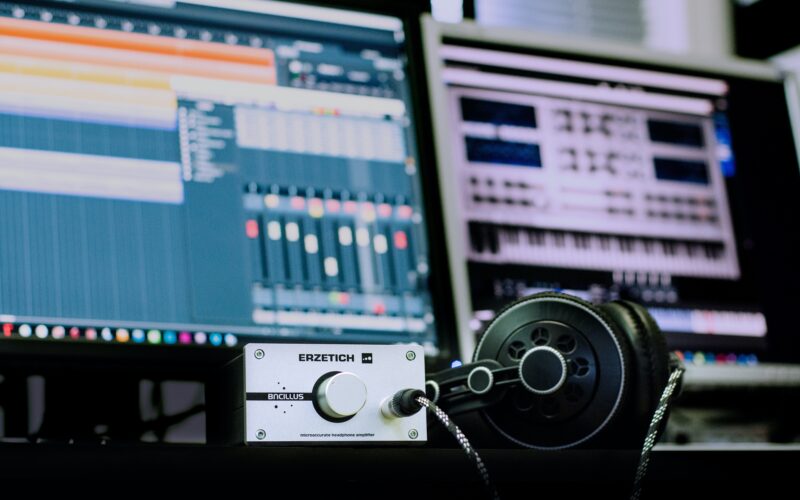In January 2023, 28-year-old pop sensation Justin Bieber (“Bieber”) became the youngest to join the growing list of musicians who have sold the rights to their personal catalogs.1[1]“Justin Bieber Sells Rights to ‘Baby,’ Rest of Music Catalog.” AP NEWS, Associated Press, 25 Jan. 2023, https://apnews.com/article/justin-bieber-music-catalog-sale-a3e0b4a37feadf2ee0f808bde94c2c10. This trend was started by older legends such as Bob Dylan and Bruce Springsteen, but these opportunities are now being seized by younger artists hoping to further monetize their previously created content.2[2]Id. Bieber’s catalog, which consists of 290 songs, sold for more than $200 million to Hipgnosis Songs Capital, which acquired 100% of Bieber’s publishing rights and artist royalties from his master recordings.3[3]Robinson, Kristin. “Justin Bieber Closes Sale to Hipgnosis for $200M – Company’s Biggest Deal to Date.” Billboard, 24 Jan. 2023, https://www.billboard.com/pro/justin-bieber-sold-publishing-recording-rights-hipgnosis/.
What Rights Are Included in an Artist’s Catalog?
A key copyright protection afforded to artists is the public performance right.4[4]“Back to Faqs What is a Public Performance of Music and What Is the ‘Performing Right’?” BMI.com, https://www.bmi.com/faw/entry/what_is_a_public_performancee_of_music_and_what_is_the_performing_right1. This is the right to perform your composition in public.5[5]Id. This encompasses uses such as radio, TV, concerts, and music played at bars and restaurants.6[6]Id. These establishments are responsible for compensating the artist with royalty payments for playing their music, and this process is streamlined by various performing rights organizations (“PROs”), such as ASCAP and BMI, so that the artist does not have to demand the royalties themselves. PROs go to the publishers that represent songwriters and receive a blanket license that covers all of the compositions owned or licensed by that publisher.7[7]Id. PROs then make deals with those who wish to use the songs. PROs provide catalog purchasers with the license for a fee, and then send the publisher its share which is split with the author.8[8]Passman, Donald S., et al All You Need to Know about the Music Business. Penguin Books, 2021. Thus, a songwriter who maintains their publishing rights will continue to receive royalties passively throughout their life so long as their songs continue to be played.9[9]Id. In addition, royalties may be generated from the master recording itself, which is the original audio recording of a song, as opposed to its written composition.10[10]“What Are Recording-Generated Royalties?” HELP CENTER, https://help.songtrust.com/knowledge/what-are-master-generated-royalties. These royalties are paid to the rights-holder by a distributor, such as a streaming service like Apple Music or Spotify, whenever a record is sold or streamed.11[11]Id. Given that streaming is currently the dominant way that people listen to music, permanent downloads and streams are accounted for as if the listener bought the physical CD.12[12]Id.
Why Are Artists Selling Their Catalogs?
Catalog sales are generally viewed in terms of the income the property is currently generating, and most entities buying an artist’s catalog are assuming that the catalog’s value will increase over time. Therefore, the purchase of a music catalog can be viewed similarly to any other reliable, appreciating asset.13[13]Graff, Gary. “Why Musical Artists Are Selling Their Catalog Rights.” Loudwire, 7 Dec. 2022, https://loudwire.com/why-music-artists-selling-catalog-rights/. This appreciation could be expedited by going out and licensing the music in a more aggressive fashion or merely by taking a prospective look at the future and determining that revenues will continue to rise.14[14]Id. For the aging artist, the rationale for selling one’s catalog seems to be that they are happy with taking home multiple millions of dollars on the back end of their career.
Nevertheless, this begs the question as to why an artist like Bieber who is at the peak of his career would want to cash in so early. The $200 million sale was likely calculated based on the amount of annual income Bieber’s catalog was bringing in, with $200 million likely being a large multiple of that number.15[15]“3 Common Ways to Valuate a Music Catalogue – What Determines the Value?” The Latest Music News and Company Updates, https://blog.anotemusic.com/3-common-ways-to-valuate-a-music-catalogue-what-determines-the-value. Despite selling his catalog, Bieber is still able to receive revenue from tours, documentaries, brand deals, his own fragrance line, and music that he releases in the future.16[16]Pannel, Ni’Kesia. “Justin Bieber Was Earning Millions by the Time He Was 14 and Sold His $200 Million Catalogue This Year – Here’s How He Makes and Spends His Fortune.” Insider, Insider, 1 Mar. 2023, https://www.insider.com/justin-biebers-net-worth-and-how-he-makes-his-money-2018-9#justin-bieber-has-been-widely-famous-for-over-a-decade-1. Hipgnosis is ultimately placing a bet that Bieber’s music will continue to be popular for the multiple years to come, as his popularity is showing no signs of slowing down.
For Bieber, the sale may have been a preference for a big paycheck now rather than an uncertain flow of annuities over the course of his life.17[17]Graff, Gary. “Why Musical Artists Are Selling Their Catalog Rights.” Loudwire, 7 Dec. 2022, https://loudwire.com/why-music-artists-selling-catalog-rights/. Instead of gambling on his continued success, Bieber has taken a safer route towards a massive, guaranteed sum of money that will sustain him and his heirs.18[18]Id. Further, a sale as large as Bieber’s can be viewed as a good tool for estate planning. It is relatively easy to set up the money that is made on a one-time sale in trust for one’s beneficiaries. If one’s estate were entitled to royalty payments instead, his heirs would sporadically receive royalty checks from multiple payers, all of such payments being subjected to a variety of taxes.19[19]Id. Finally, a one-time payment is taxed at a lower rate than the periodic income Bieber receives from royalty payments (37% as a member of the highest tax bracket, as opposed to 20% for the sale).20[20]Id.
Who Else Is Part of This Trend?
Cultural icons Bruce Springsteen and Paul Simon led the wave of catalog sales in 2021, with Justin Timberlake, Phill Collins, and Neil Diamond (to name a few) following this trend in 2022.21[21]Millman, Ethan. “Justin Bieber Sells Publishing and Recorded Catalog for Reported $200 Million.” Rolling Stone, Rolling Stone, 24 Jan. 2023, https://www.rollingstone.come/music/music-news/justin-bieber-sells-catalog-hipgnosis-1234651518/.. The clear difference between most these artists and Bieber is that they are older and at the tail-end of their careers (with mid-career artist Timberlake the exception). Thus, the rationale behind these sales is that they’re not getting any bigger and that their royalty sales will eventually start declining soon if they haven’t already.22[22]Id. This distinguishing factor is intriguing because Bieber is notably younger than these legends, and while they still have massive followings, they are undeniably a lesser part of the cultural zeitgeist in 2023 than the 28-year-old superstar.
Conclusion
The trend of catalog sales may indicate a very different future for the music industry as a whole; one where major young artists may seize the opportunity to sell the rights to their work. The implications of this are yet to be revealed, but one can imagine that such sales may change the way we view artists in relation to their music, and their connection to society as a whole.
Written by: Thomas Howard
Thomas is a 2024 J.D. Candidate at Brooklyn Law School
1 “Justin Bieber Sells Rights to ‘Baby,’ Rest of Music Catalog.” AP NEWS, Associated Press, 25 Jan. 2023, https://apnews.com/article/justin-bieber-music-catalog-sale-a3e0b4a37feadf2ee0f808bde94c2c10.
2 Id.
3 Robinson, Kristin. “Justin Bieber Closes Sale to Hipgnosis for $200M – Company’s Biggest Deal to Date.” Billboard, 24 Jan. 2023, https://www.billboard.com/pro/justin-bieber-sold-publishing-recording-rights-hipgnosis/
4 “Back to Faqs What is a Public Performance of Music and What Is the ‘Performing Right’?” BMI.com, https://www.bmi.com/faw/entry/what_is_a_public_performancee_of_music_and_what_is_the_performing_right1.
5 Id.
6 Id.
7 Id.
8 Passman, Donald S., et al All You Need to Know about the Music Business. Penguin Books, 2021
9 Id.
10 “What Are Recording-Generated Royalties?” HELP CENTER, https://help.songtrust.com/knowledge/what-are-master-generated-royalties.
11 Id.
12 Id.
13 Graff, Gary. “Why Musical Artists Are Selling Their Catalog Rights.” Loudwire, 7 Dec. 2022, https://loudwire.com/why-music-artists-selling-catalog-rights/.
14 Id.
15 “3 Common Ways to Valuate a Music Catalogue – What Determines the Value?” The Latest Music News and Company Updates, https://blog.anotemusic.com/3-common-ways-to-valuate-a-music-catalogue-what-determines-the-value.
16 Pannel, Ni’Kesia. “Justin Bieber Was Earning Millions by the Time He Was 14 and Sold His $200 Million Catalogue This Year – Here’s How He Makes and Spends His Fortune.” Insider, Insider, 1 Mar. 2023, https://www.insider.com/justin-biebers-net-worth-and-how-he-makes-his-money-2018-9#justin-bieber-has-been-widely-famous-for-over-a-decade-1.
17 Graff, Gary. “Why Musical Artists Are Selling Their Catalog Rights.” Loudwire, 7 Dec. 2022, https://loudwire.com/why-music-artists-selling-catalog-rights/.
18 Id.
19 Id.
20 Id.
21 Millman, Ethan. “Justin Bieber Sells Publishing and Recorded Catalog for Reported $200 Million.” Rolling Stone, Rolling Stone, 24 Jan. 2023, https://www.rollingstone.come/music/music-news/justin-bieber-sells-catalog-hipgnosis-1234651518/.
22 Id.




